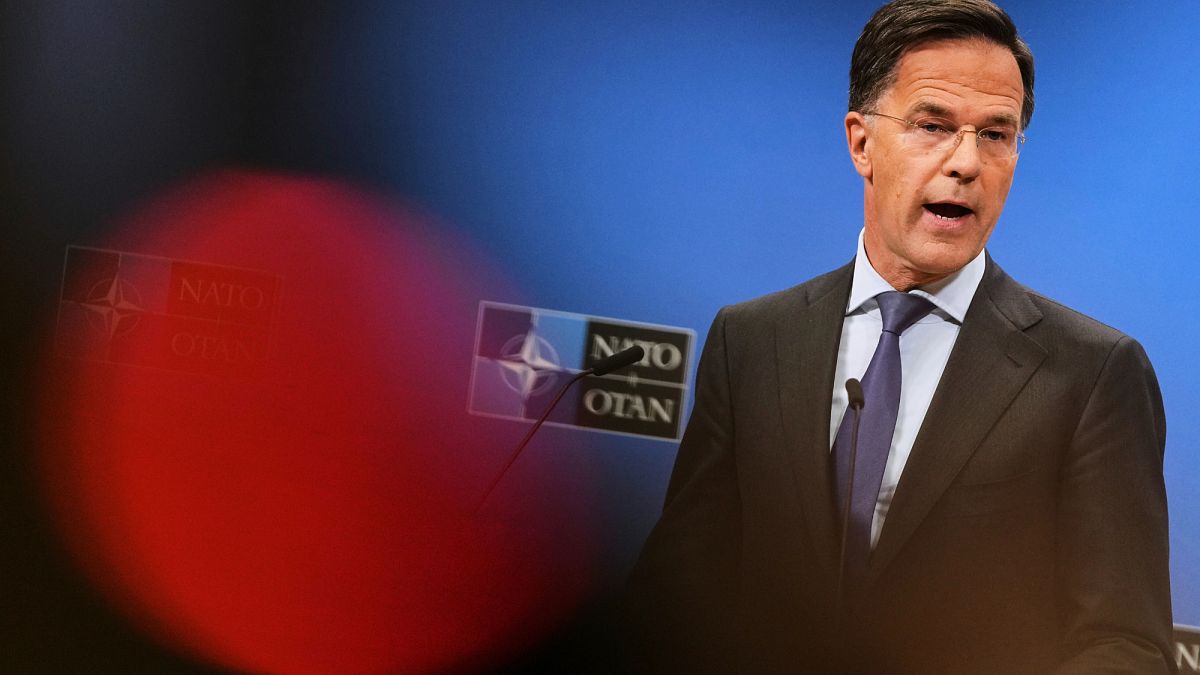NATO allies are readying themselves for a major ‘shift’ in responsibility for defending the continent, but diplomats told Euronews on the eve of a ministerial meeting in Brussels that the transfer of burden of responsibility is crucial to keep the US in the alliance.
US Secretary of State Marco Rubio is in Brussels on Thursday and Friday attending his first meeting of NATO foreign affairs ministers where he’s expected to hammer home US demands that the burden of security and defence of the alliance has ‘shifted’ to Europeans.
But Europeans will have a message for him too: that it’s not a good move to try to go it alone – without the support of its 31 allies.
“The messaging from Rubio will be clear: that Europeans need to take responsibility for conventional defence of Europe so we can take our American equipment to other theatres (of war), and we want Europeans to go to 5% defence expenditure,” a European NATO official with direct knowledge of the situation told Euronews.
“Burden shifting needs to take place” to keep the US within the alliance, the official said.
Allies are also bracing themselves for a drop the number of US troops stationed in Europe under NATO.
Currently there are around 100,000 troops protecting NATO territory, and members are considering the US could reduce this number by between around 20,000 – 50,000.
The US has not given any formal indication of this, but Secretary of Defence Petr Hegseth warned last month “you can’t make an assumption that America’s presence will last forever”.
“We need US troops in Europe – we have 100,000 now but I think we will see that number decrease – if we had half of that it would be fine,” said a diplomat ahead of today’s summit.
The impact of the US unwinding its presence after years of engagement would be severe but allies also say that if and when an announcement comes, they expect to be fully informed directly, and not find out from the media.
Moreover, a European diplomat has told Euronews that it would be “hard to digest” if an announcement emerged from US talks with Russia.
“If they do it, then the US scale back in an orderly way – we don’t want to read in the press that they’re pulling out, we need a process,” the diplomat said, adding: “And It would be very dramatic if it was a result of negotiations with Moscow – that would be hard to digest.”
Despite recent confrontations from the Trump administration towards Europe, NATO allies said US membership and commitment is indispensable for NATO deterrence.
“But we will have to drastically step up,” said the diplomat.
While Rubio will have a stark message to deliver to the Europeans, foreign affairs ministers will tell him that the apparent US pivot away from its traditional allies won’t serve it well as it concentrates threats in the Indo-Pacific.
“We will tell him now is not the time to go it alone – the comparative advantage staying with Europe than moving towards with China and Russia is you have 32 strong democracies by your side – Europe is buying s so much from American companies – we buy four times more in America than we buy European,” said the diplomat.
Several European diplomats have told Euronews they don’t expect the Trump administrations threats to annex Greenland – a semi-autonomous Danish territory – or take over Canada as the 51st US state to dominate the discussion, although Secretary of State Rubio is due to have a bilateral meeting with Danish Foreign Minister Lars Løkke Rasmussen.
On meeting the demands set out by the Trump administration which will be echoed by Rubio, Rutte told journalists “lets celebrate the fact that we have spent an aggregate €700 billion euros since 2017”.
President Trump and US Defence Secretary Hegseth have said NATO spending needs to drastically increase from 2% to 5% of GDP which is likely to take a heavy toll on allies such as Spain, Italy and Belgium which haven’t yet reached 2%.
Europe has to “assess exactly what the targets we need to achieve, and which gaps that we have”, he said, adding: “We need more long-range capabilities, more air defence and to invest in our armies.”
“When you look at the aggregate number, you can assume that allies will have to spent considerably north of 3% to meet those targets.”
Read the full article here


